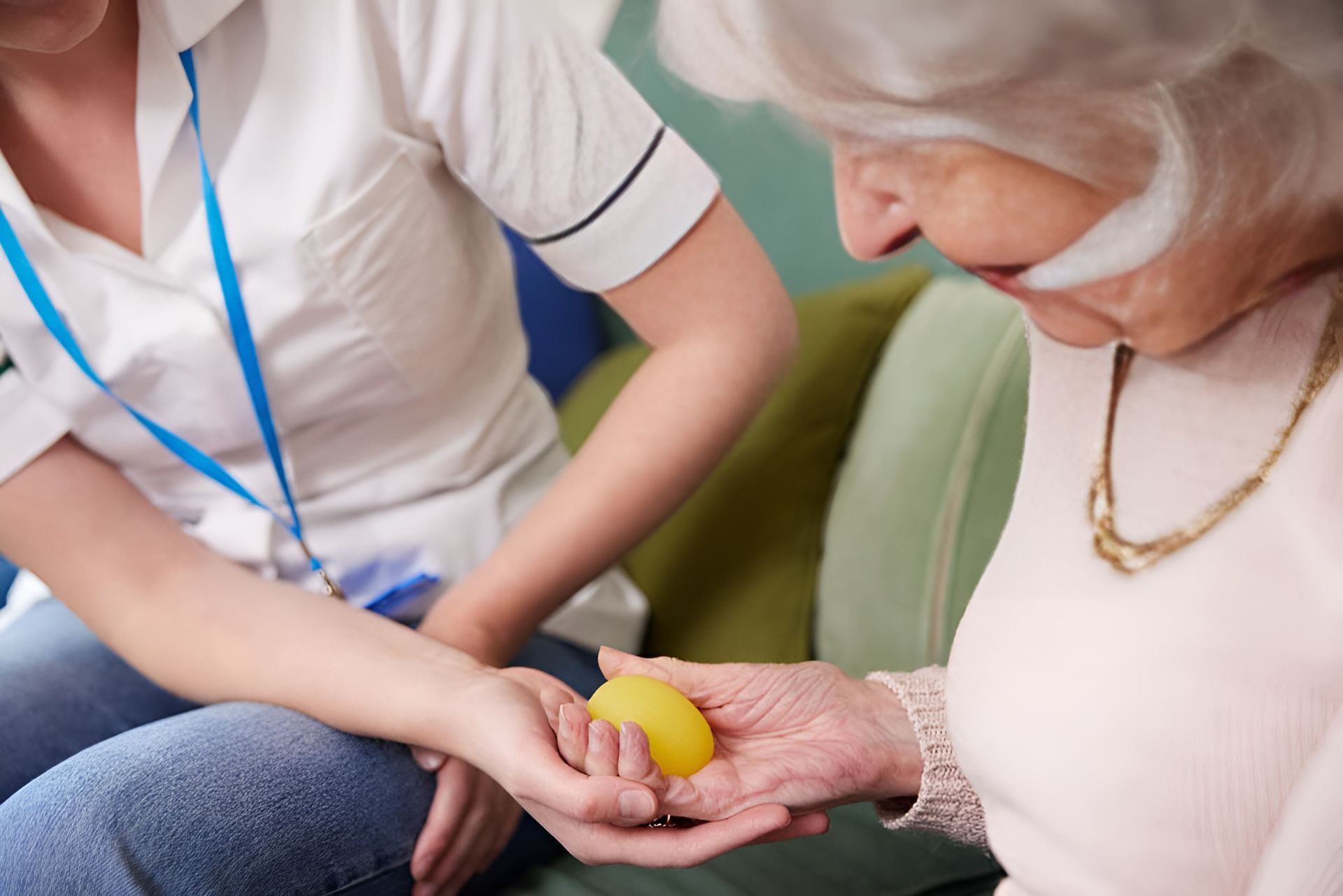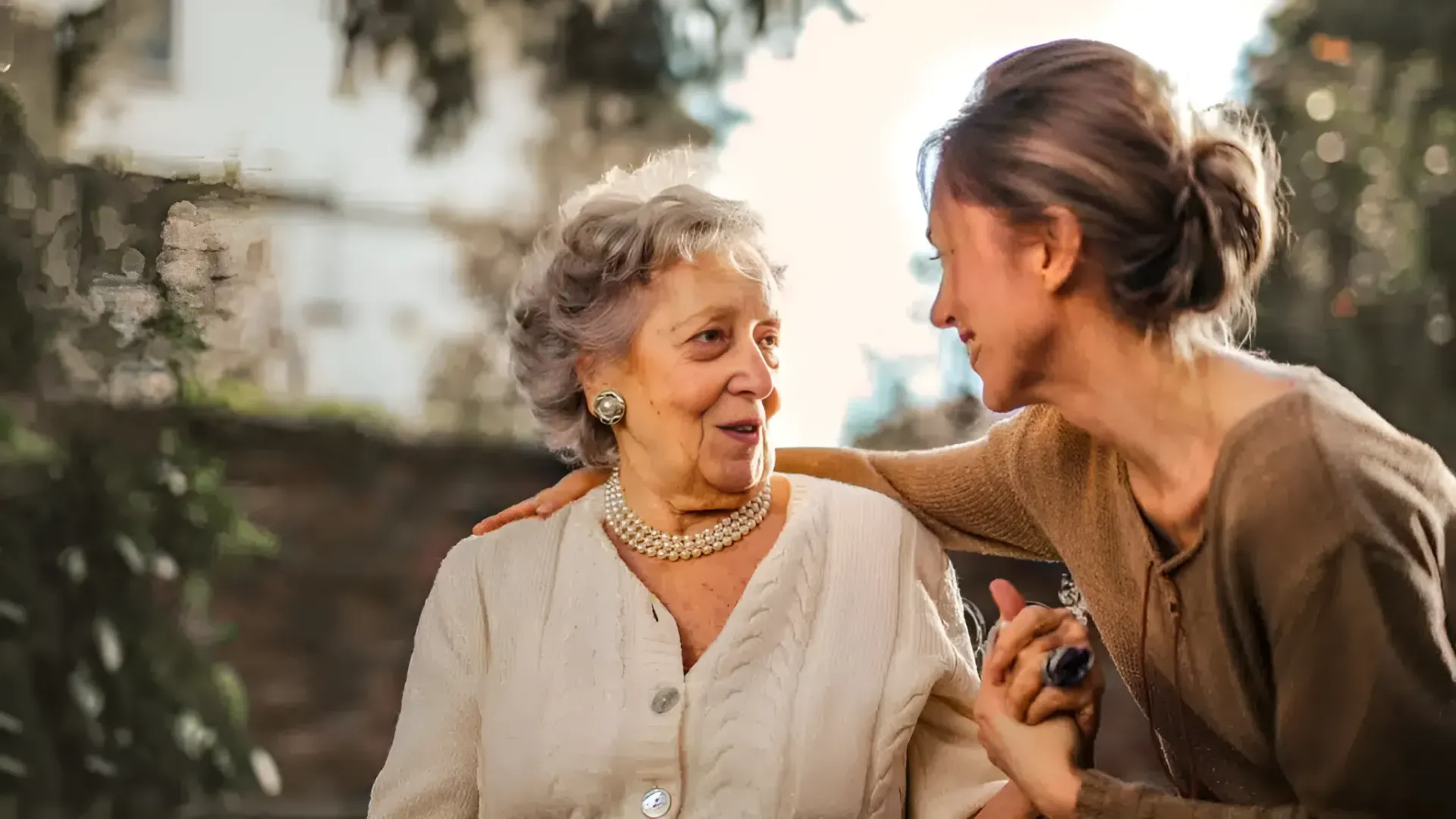Effective Occupational Therapy Activities for Elders

Effective Occupational Therapy Activities for Elders
Occupational therapy activities are for enhancing the quality of life for elders. These activities focus on maintaining and improving skills and abilities, promoting independence and overall well-being. By engaging in these activities, seniors can prevent falls, improve cognitive skills, and live fulfilling lives.
Key Takeaways:
- Occupational therapy activities are essential for elders to enhance their quality of life.
- These activities promote independence and overall well-being.
- Engaging in occupational therapy activities can prevent falls and improve cognitive skills.
- Occupational therapists play a vital role in providing tailored activities for seniors.
- By participating in these activities, seniors can continue to lead fulfilling lives.
The Benefits of Crossword Puzzles and Word Games for Seniors
As seniors age, it is crucial to find activities that provide entertainment and offer cognitive stimulation. Crossword puzzles and word games are excellent options that can help seniors enhance their cognitive skills while having fun. These games challenge seniors’ problem-solving abilities, memory retention, and language skills, making them perfect for keeping the mind sharp.
Playing crossword puzzles and word games can positively impact seniors’ cognitive abilities, such as memory, attention, and executive functions. Research has shown that engaging in these activities can reduce the risk of cognitive decline and improve overall brain health in the aging population. The mental agility required to solve puzzles and find words can help seniors maintain their cognitive skills and prevent cognitive impairment.
In addition to the cognitive benefits, crossword puzzles and word games provide a social element that can combat feelings of isolation and loneliness. Seniors can participate in these activities with friends and family or in group settings, fostering social interaction and connection. This social interaction can improve mental well-being, decrease stress levels, and a sense of belonging.
The Benefits of Crossword Puzzles and Word Games for Seniors:
- Enhanced cognitive skills, including memory retention and problem-solving abilities.
- Reduced risk of cognitive decline and improved brain health.
- Promotion of social interaction and decreased feelings of loneliness.
- Mental stimulation and entertainment.
| ACTIVITY TYPE | BENEFITS |
|---|---|
| Crossword Puzzles | Improved problem-solving skills, Enhanced vocabulary and language skills, Boosted memory retention. |
| Word Games (e.g., Scrabble, Boggle) | Enhanced cognitive abilities, Increased mental flexibility, Improved focus and attention. |
| Sudoku and Number Puzzles | Improved logical reasoning, Enhanced numerical skills, Enhanced problem-solving abilities. |
Seniors can easily incorporate crossword puzzles and word games into their daily routines, whether during leisure time or as part of occupational therapy sessions. Engaging in these activities provides mental exercise and contributes to maintaining cognitive abilities and overall well-being in the senior population.
Video Games for Seniors: More Than Just Entertainment
When you think of video games, you might picture young people engrossed in virtual worlds. However, video games are not just for the young. They have significant benefits for seniors as well. Not only do video games provide entertainment, but they also improve manual dexterity and hand-eye coordination, which are crucial for performing daily tasks.
Playing video games can help seniors maintain their cognitive abilities and keep their joints mobile and flexible. Contrary to popular belief, video games can improve reasoning skills and provide a social component, allowing seniors to make friends and stay engaged even if they can’t leave their homes quickly.
If you’re a senior looking to incorporate video games into your routine, a wide variety of options are available. From puzzle games that enhance critical thinking to virtual sports games that encourage physical activity, there is something for everyone. Additionally, many video game consoles offer settings to accommodate different skill levels and physical abilities, ensuring that seniors enjoy gameplay that suits their needs and preferences.
The Benefits of Video Games for Seniors:
- Improves reasoning skills
- Enhances hand-eye coordination
- Boosts manual dexterity
- Provides a social component
- Keeps joints mobile and flexible
| VIDEO GAME | BENEFITS |
|---|---|
| Puzzle games | Improve critical thinking and problem-solving skills. |
| Sports games | Encourage physical activity and enhance coordination. |
| Strategy games | Promote strategic thinking and decision-making abilities. |
| Fitness games | Provide an enjoyable way to stay physically active. |
| Multiplayer games | Offer social interaction and connection with others. |
Remember, video games should be enjoyed in moderation and as part of a well-rounded lifestyle that includes other physical and cognitive exercise forms. Consult an occupational therapist to guide you on the appropriate video games and settings for your specific needs and goals.
The Importance of Matching and Memory Games for Seniors with Dementia
Seniors diagnosed with dementia can benefit significantly from matching and memory games as part of their occupational therapy. These activities provide essential cognitive stimulation and can potentially slow down the progression of the disease. By incorporating matching and memory games into therapy sessions, seniors with dementia can experience improved cognitive skills and a better quality of life.
Enhancing Cognitive Skills
Matching and memory games are designed to exercise and challenge cognitive skills such as memory, attention, and problem-solving. These games require seniors to remember patterns, make connections, and recall information, essential for maintaining cognitive abilities. Engaging in these activities can help seniors with dementia preserve their cognitive function for extended periods, enabling them to retain more independence in their daily lives.
Promoting Social Engagement
Matching and memory games can also provide opportunities for social interaction, which benefits seniors with dementia. Participating in these games in a group setting allows seniors to engage with others, fostering a sense of connection and reducing feelings of isolation. Social engagement can positively impact their emotional well-being and overall quality of life.
Creating Meaningful Moments
Matching and memory games can create meaningful moments for seniors with dementia. Revisiting familiar images or objects through these games can evoke memories and spark conversations, creating a sense of joy and engagement. These activities provide seniors with dementia the opportunity to engage with their past experiences and share stories, bringing a sense of purpose and fulfillment.
| BENEFITS OF MATCHING AND MEMORY GAMES FOR SENIORS WITH DEMENTIA |
|---|
| Enhanced cognitive skills |
| Improved social engagement |
| Meaningful moments and increased emotional well-being |
Incorporating matching and memory games into occupational therapy sessions for seniors with dementia is valuable for improving their cognitive abilities and overall well-being. These activities provide mental stimulation, promote social engagement, and create meaningful experiences. By prioritizing these games in therapy, seniors with dementia can continue to enjoy an enhanced quality of life.
Tossing and Catching Games: A Fun Way to Maintain Physical Abilities
As seniors age, engaging in activities that help maintain their physical abilities becomes increasingly essential. Tossing and catching games are enjoyable and provide numerous benefits for seniors. These games help improve judgment of distance, space, and depth perception, which is essential for maintaining balance and preventing falls. Tossing and catching games also allow seniors to practice and enhance their grip strength, which is crucial for performing everyday tasks.
Engaging in tossing and catching games during occupational therapy sessions can significantly impact seniors’ physical capabilities. These games offer a fun and interactive way to improve coordination, reflexes, and hand-eye coordination. By incorporating these games into their therapy, seniors can enhance their physical abilities and increase their independence in daily activities.
Benefits of Tossing and Catching Games for Seniors:
- Improves judgment of distance, space, and depth perception
- Enhances hand-eye coordination and reflexes
- Strengthens grip and forearm muscles
- Promotes balance and stability
- Offers a fun and engaging way to exercise and maintain physical abilities
Incorporating tossing and catching games into occupational therapy sessions for seniors effectively promotes physical well-being and enhances the overall quality of life. These games provide the opportunity to address multiple aspects of physical abilities while keeping seniors engaged and motivated. So why not grab a ball and start tossing and catching? It’s not only a fun activity but also a beneficial one for seniors.
| TOSSING AND CATCHING GAME | BENEFITS |
|---|---|
| Balloon Volleyball | Improves hand-eye coordination and reflexes |
| Bocce Ball | Enhances judgment of distance and space |
| Tennis Ball Toss | Strengthens grip and forearm muscles |
ADL and IADL Activities for Independence and Functionality
Occupational therapy promotes independence and functionality in activities of daily living (ADL) and instrumental activities of daily living (IADL). These activities are designed to help seniors maintain their ability to perform essential tasks and improve their overall quality of life. By incorporating ADL and IADL activities into therapy sessions, seniors can practice and enhance their skills, allowing them to continue living independently for as long as possible.
ADL Activities
ADL activities are the fundamental tasks necessary for self-care and personal hygiene. These activities include bathing, dressing, grooming, eating, and using the toilet. Through occupational therapy, seniors can receive guidance and training to regain or improve their ability to perform these tasks independently. For example, therapists may focus on improving physical strength and coordination to help seniors dress and bathe. These activities not only promote physical well-being but also boost self-confidence and feelings of independence.
IADL Activities
IADL activities refer to the more complex tasks necessary for independent living within a community. These activities include managing finances, grocery shopping, meal preparation, housekeeping, and using transportation. Occupational therapists can work with seniors to develop strategies and techniques to overcome physical, cognitive, or sensory limitations that may affect their ability to perform these tasks. By enhancing skills related to IADL activities, seniors can maintain their independence and continue participating in the community and society.
| ADL ACTIVITIES | IADL ACTIVITIES |
|---|---|
| Bathing | Managing finances |
| Dressing | Grocery shopping |
| Grooming | Meal preparation |
| Eating | Housekeeping |
| Using the toilet | Using transportation |
Seniors can maintain their autonomy, independence, and functionality by focusing on ADL and IADL activities during occupational therapy. These activities address the physical aspects of daily living and contribute to a greater sense of well-being and purpose. The goal is to ensure that seniors can continue leading meaningful and fulfilling lives, regardless of their limitations.
Fun and Engaging Activities to Address Body Functions
Occupational therapy activities can be both enjoyable and beneficial for addressing various body functions in seniors. These activities improve coordination, balance, strength, and physical and cognitive abilities. By incorporating fun and engaging activities into therapy sessions, seniors can enhance their overall well-being and maintain their independence.
One effective activity is a scavenger hunt, which can be tailored to target specific body functions. This activity requires seniors to search for and collect items based on given clues. It promotes cognitive skills such as problem-solving, memory, and attention to detail. Additionally, the physical aspect of moving around and searching for the items helps improve coordination, balance, and overall mobility. Seniors can participate individually or in small groups, making it a social and engaging activity.
Another activity that addresses body functions is an obstacle course. This activity can be set up indoors or outdoors and modified based on seniors’ abilities and needs. The obstacle course challenges seniors’ coordination, balance, and strength as they navigate various obstacles, such as cones, hurdles, and balancing beams. It promotes physical capabilities and enhances cognitive abilities like planning, sequencing, and problem-solving. Seniors can time themselves or compete with others, adding an element of fun and motivation.
In addition to scavenger hunts and obstacle courses, other activities that can address body functions include painting, yoga, dancing, and puzzles. Painting helps improve fine motor skills and hand-eye coordination, while yoga and dancing enhance balance, flexibility, and strength. Puzzles, on the other hand, stimulate cognitive abilities such as problem-solving, memory, and concentration. These activities can be adapted to accommodate seniors of different skills and interests, making them enjoyable and engaging.
| ACTIVITY | BENEFITS |
|---|---|
| Scavenger Hunt | Promotes cognitive skills like problem-solving and memory, Improves coordination, balance, and mobility, Encourages social interaction |
| Obstacle Course | Challenges in coordination, balance, and strength, Enhances cognitive abilities like planning and problem-solving, Provides a fun and motivating activity |
| Painting | Improves fine motor skills and hand-eye coordination, Allows for self-expression and creativity, Promotes relaxation and stress reduction |
| Yoga | Enhances balance, flexibility, and strength, Improves body awareness and posture, Promotes relaxation and mental well-being |
| Dancing | Improves coordination, balance, and cardiovascular fitness, Boosts mood and mental well-being, Provides a social and enjoyable activity |
| Puzzles | Stimulates cognitive abilities like problem-solving and memory, Enhances concentration and attention to detail, Increases mental agility and brain health |
Education and Skills Training for Life Skills
Occupational therapy goes beyond physical activities and also includes education and skills training. Seniors can benefit from guidance on various aspects that enhance their daily lives and promote independence. Occupational therapists empower seniors to manage their lives more confidently by incorporating education and skills training into therapy sessions.
Examples of Education and Skills Training for Life Skills
Occupational therapy goes beyond physical activities and also includes education and skills training. Seniors can benefit from guidance on various aspects that enhance their daily lives and promote independence. Occupational therapists empower seniors to manage their lives more confidently by incorporating education and skills training into therapy sessions.
Examples of Education and Skills Training for Life Skills
- Discharge Planning: Seniors learn about transitioning from a healthcare facility to their home, ensuring a smooth and safe return.
- Precaution Education: Occupational therapists educate seniors on potential environmental hazards and teach strategies to prevent accidents and injuries.
- Chronic Health Management: Seniors receive guidance on managing their chronic health conditions, including medication management, symptom recognition, and lifestyle modifications.
- Home Safety: Occupational therapists assess the home environment and educate seniors on measures to create a safe and accessible living space, reducing the risk of falls and accidents.
- Skin Integrity: Seniors learn proper skin care techniques to prevent skin breakdown and manage existing skin conditions, such as pressure ulcers.
- Splint Use: Occupational therapists provide education on using and maintaining splints to support and protect injured or weakened joints.
By focusing on education and skills training, occupational therapists equip seniors with the knowledge and tools to navigate their daily lives more independently. These activities help seniors develop the necessary skills to overcome challenges and maintain high functionality.
| EDUCATION AND SKILLS TRAINING FOR LIFE SKILLS | BENEFITS |
|---|---|
| Discharge Planning | Smooth transition from healthcare facility to home |
| Precaution Education | Accident and injury prevention |
| Chronic Health Management | Effective management of chronic conditions |
| Home Safety | Reduced risk of falls and accidents |
| Skin Integrity | Prevention and management of skin conditions |
| Splint Use | Support and protection for weakened joints |
With the proper education and skills training, seniors can overcome the challenges they may face and maintain their independence. Occupational therapy provides invaluable support in equipping seniors with the necessary knowledge and skills to lead fulfilling lives.
Incorporating Technology and Communication Activities
Technology and communication activities have become integral components of occupational therapy for seniors. Through the use of modern technology, seniors can not only stay connected with their loved ones but also engage in various cognitive exercises to enhance mental well-being. Occupational therapists are adept at incorporating technology and communication activities into therapy sessions to promote independence and overall functionality in seniors.
One example of technology-based activities is teaching seniors how to use smartphone applications for communication. By utilizing messaging or video chat applications, seniors can easily connect with their family and friends, even if they are physically distant. These activities can help combat feelings of isolation and loneliness and give seniors a sense of belonging and social interaction.
In addition to communication, technology can be utilized for cognitive exercises. Occupational therapists may introduce seniors to brain-training applications or online memory games targeting attention, memory, and problem-solving. These activities stimulate the mind and help seniors maintain and improve their cognitive abilities.
Benefits of Technology and Communication Activities for Seniors
The incorporation of technology and communication activities in occupational therapy offers several benefits for seniors:
- Promotes social connection and reduces feelings of isolation
- Enhances cognitive abilities and mental well-being
- Provides opportunities for learning and skill development
- Increases access to information and resources
| BENEFITS OF TECHNOLOGY AND COMMUNICATION ACTIVITIES | EXAMPLE OF ACTIVITIES |
|---|---|
| Promotes social connection | – Video calls with family and friends, Participating in online communities or support groups |
| Enhances cognitive abilities | – Brain-training applications, Online memory games |
| Provides learning opportunities | – Online courses or tutorials, Virtual museum tours |
| Increases access to information | – Internet research, Online news and articles |
Addressing Emotional Well-being with Therapeutic Activities
Occupational therapy recognizes the importance of emotional well-being in seniors and offers a range of therapeutic activities to address this aspect. These activities provide opportunities for self-expression, creativity, and social engagement, promoting a sense of purpose and fulfillment in older adults.
One of the therapeutic activities commonly used is scrapbooking. This creative outlet allows seniors to preserve memories, reflect on their life experiences, and share personal stories with loved ones. By scrapbooking, seniors can find joy in reminiscing and creating tangible reminders of their milestones.
Sensory bins are another effective therapeutic activity that stimulates the senses and promotes relaxation. These bins are filled with various materials, such as sand, rice, or water, and objects of different textures. Seniors can explore these bins by touching, feeling, and manipulating the objects, providing a calming and soothing experience that reduces anxiety and stress.
Music therapy is also widely utilized in occupational therapy to address emotional well-being. Playing musical instruments, singing, or participating in group music sessions can uplift seniors’ spirits and provide an outlet for self-expression. Music has a powerful impact on emotions and can evoke memories, evoke positive feelings, and improve overall well-being.
Engaging in arts and crafts activities like painting or pottery allows seniors to express themselves creatively while promoting relaxation and focus. These activities provide an outlet for emotional expression, enabling seniors to channel their feelings and emotions into their artwork. Creating something unique and meaningful can boost self-esteem and foster a sense of accomplishment.
Incorporating these therapeutic activities into occupational therapy sessions can profoundly impact seniors’ emotional well-being. By addressing this aspect of their overall well-being, occupational therapists help older adults find purpose, joy, and fulfillment in their daily lives.
Conclusion
Occupational therapy activities for elders are crucial in maintaining their physical, cognitive, and emotional well-being. By participating in these activities, seniors can enhance their quality of life and preserve their independence. Occupational therapists play a vital role in designing and implementing practical and personalized activities that promote functionality and overall well-being for older adults.
From crossword puzzles and video games to matching games and tossing activities, a wide range of therapeutic options are available. These activities help seniors improve their cognitive skills, manual agility, balance, and physical abilities. Additionally, they provide social interaction and stimulation, encouraging seniors to stay mentally and physically active.
Occupational therapy extends beyond physical exercise, incorporating education, skills training, and technology-based activities. Seniors can learn essential life skills, receive discharge planning guidance, and discover how to use technology to enhance their cognitive abilities and maintain social connections.
Overall, occupational therapy activities for elders are tailored to address specific needs and abilities, promoting independence, functionality, and a higher quality of life. By engaging in these activities, seniors can continue to lead fulfilling lives and enjoy the many benefits of occupational therapy.
FAQs on Occupational Therapy Activities for Elders
What are some practical occupational therapy activities for elders?
Some practical occupational therapy activities for elders include crossword puzzles, video games, matching and memory games, tossing and catching games, ADL and IADL activities, fun and engaging activities to address body functions, education, and skills training, incorporating technology and communication activities, and therapeutic activities to address emotional well-being.
How do crossword puzzles and word games benefit seniors?
How do crossword puzzles and word games benefit seniors?
Crossword puzzles and word games help seniors improve their cognitive and reasoning skills. They provide mental stimulation and entertainment, and seniors can continue playing these games outside therapy to maintain their cognitive abilities.
What are the benefits of video games for seniors?
Video games improve reasoning skills, hand-eye coordination, and manual dexterity. They provide a social component and help seniors practice essential movements, keeping their joints mobile and flexible.
Why are matching and memory games important for seniors with dementia?
Matching and memory games can potentially slow down the progression of dementia by providing cognitive stimulation. They exercise cognitive skills and can lessen the symptoms associated with dementia as the disease progresses.
How do tossing and catching games help seniors?
Tossing and catching games help seniors maintain critical physical abilities such as judging distance, space, and depth perception. They also help seniors maintain grip strength, which is essential for daily tasks.
What are ADL and IADL activities?
ADL activities (Activities of Daily Living) include bathing, dressing, hygiene routines, transfers, etc. IADL activities (Instrumental Activities of Daily Living) include organizing closets, folding laundry, and more. These activities are crucial for seniors to practice and enhance their ability to perform essential tasks.
How do fun and engaging activities address body functions?
Fun and engaging activities like scavenger hunts, obstacle courses, painting, yoga, dancing, and puzzles help seniors improve their physical and cognitive abilities. These activities provide a holistic approach to occupational therapy.
What is the role of education and skills training in occupational therapy?
Education and skills training in occupational therapy help seniors with discharge planning, precaution education, chronic health management, home safety, and more. They empower seniors to manage their daily lives more independently and confidently.
How can technology and communication activities be incorporated into occupational therapy?
Occupational therapists can teach seniors how to use smartphones for communication, virtual social activities, cognitive exercises, and memory training. Technology is crucial in maintaining mental well-being and enhancing seniors’ overall occupational therapy experience.
How do therapeutic activities address emotional well-being?
Therapeutic activities like scrapbooking, sensory bins, singing, playing musical instruments, and arts and crafts help seniors express themselves and find joy in creative outlets. These activities promote emotional well-being and provide a sense of purpose and fulfillment.










